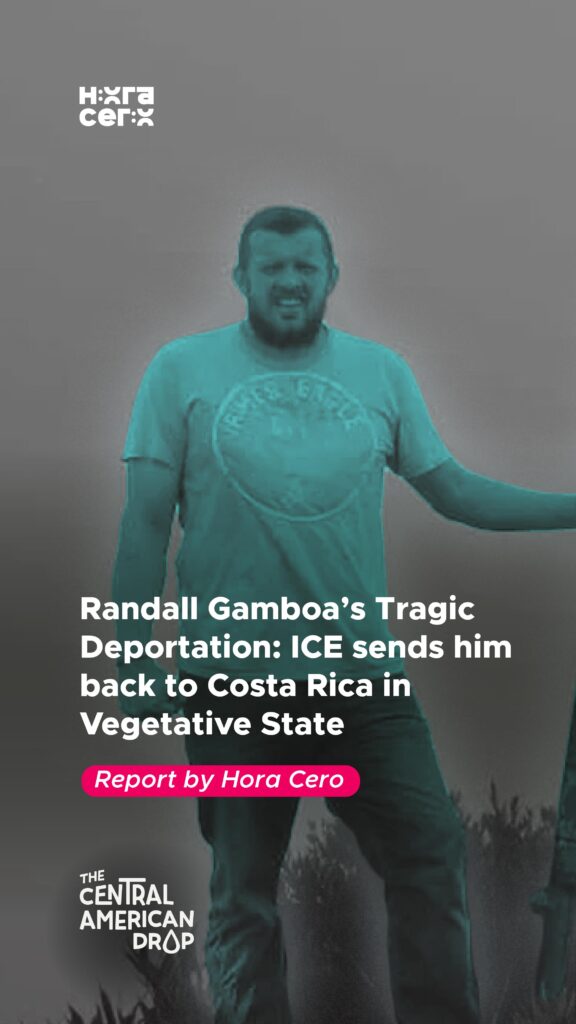
Costa Rican Randall Gamboa was apprehended by the Immigration and Customs Enforcement Service (ICE). He was later deported to Costa Rica, in a vegetative state, at the beginning of September.
Gamboa died on October 26, due to his critical health condition, in a public hospital in southern Costa Rica. Randall migrated in December 2024 and was arrested by ICE two days after he entered the U.S.
He was later transferred to the Webb County Detention Center and then to the Port Isabel Detention Center, both in Texas. From there, he maintained telephone contact with his family until June 2025.
However, communication ceased, and although his family requested information, the U.S. authorities offered no further explanation. From that moment on, his relatives considered him missing.
After several attempts to locate him, through private lawyers, they were able to find him in a Texas hospital in August. He was then returned to Costa Rica on an ambulance flight financed by ICE and was immediately hospitalized.
Randall was diagnosed with encephalopathy, meaning impaired brain function, and rhabdomyolysis, damage to muscle tissue that causes the release of harmful substances into the bloodstream. The latter often leads to kidney failure.
Randall’s condition was presumably caused during his detention in ICE facilities. After his deportation, his family asked the Costa Rican government to demand answers from the U.S. government regarding the severity of his health.
However, after his death, the Costa Rican Ministry of Foreign Affairs only stated that they would «continue to make all necessary efforts to clarify the circumstances» of the case.
According to the Gamboa family, this course of action represents “basic” measures and is not necessarily commensurate with the seriousness of the situation. The president of Costa Rica, Rodrigo Chávez, has still not commented on the matter.
To date, Costa Rica has not received any formal response from the U.S. Gamboa’s family, on the other hand, is prepared to take the case to the Inter-American Court of Human Rights (IACHR).

| Cookie | Duración | Descripción |
|---|---|---|
| cookielawinfo-checkbox-analytics | 11 months | This cookie is set by GDPR Cookie Consent plugin. The cookie is used to store the user consent for the cookies in the category "Analytics". |
| cookielawinfo-checkbox-functional | 11 months | The cookie is set by GDPR cookie consent to record the user consent for the cookies in the category "Functional". |
| cookielawinfo-checkbox-necessary | 11 months | This cookie is set by GDPR Cookie Consent plugin. The cookies is used to store the user consent for the cookies in the category "Necessary". |
| cookielawinfo-checkbox-others | 11 months | This cookie is set by GDPR Cookie Consent plugin. The cookie is used to store the user consent for the cookies in the category "Other. |
| cookielawinfo-checkbox-performance | 11 months | This cookie is set by GDPR Cookie Consent plugin. The cookie is used to store the user consent for the cookies in the category "Performance". |
| viewed_cookie_policy | 11 months | The cookie is set by the GDPR Cookie Consent plugin and is used to store whether or not user has consented to the use of cookies. It does not store any personal data. |